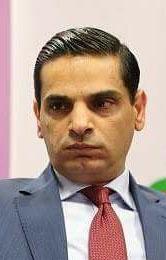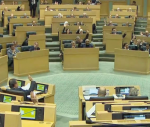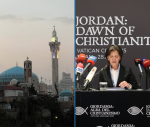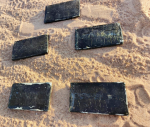You are here
New daily bucks trend in Lebanon
By AFP - Jul 02,2019 - Last updated at Jul 02,2019
BEIRUT — Lebanon woke up to a new national newspaper on stands on Monday, even after a series of prominent dailies have disappeared from print over the past three years.
Nida Al Watan, a 16-page publication to be printed six days a week, could be seen on newstands and in libraries.
“The newspaper has a goal and champions a cause, which is, in brief, the sovereignty of Lebanon,” Editor-in-Chief Bechara Charbel told AFP.
It would notably address corruption, foreign meddling in internal politics, and illegitimate use of force in the country, the veteran journalist said.
Lebanon’s media landscape is rife with privately-owned newspapers affiliated with at least one of the country’s many political parties, who are often the primary source of funding.
This has left little room for an independent press.
Nida Al Watan, or Call of the Nation, is funded by Lebanese businessman Michel Mecattaf who unsuccessfully ran for a seat in parliament during last year’s polls.
He was formerly a member of the Christian Kataeb Party and is affiliated with a US- and Saudi-backed alliance that became known as March 14.
The launch of Nida Al Watan comes during a time of crisis for Lebanon’s print media.
In January, Al Mustaqbal issued its last print version 20 years after being established by late billionaire premier Rafiq Al Hariri.
In September last year, political daily Al Anwar disappeared from print after nearly 60 years due to “financial losses”.
In June 2018, prestigious pan-Arab newspaper Al Hayat closed its Lebanon offices, where it was first founded in 1946 before later becoming Saudi owned.
Its printing presses in Beirut stopped the same month, leaving its international version only available online.
In late 2016, Lebanese newspaper As Safir closed 42 years after publishing its first edition, with the founder saying it had run out of funds.
“A newspaper can’t be a commercial enterprise in Lebanon,” said Charbel, explaining that the country’s economy and the many challenges ailing the print media sector make profitability nearly impossible.
But “the newspaper still has an important place despite the decline of print media”, the editor-in-chief said.
“I think there is trust in newspapers, and the proof is that the most read news websites are operated by newspapers,” he added.
Lebanon has weathered a series of political crises since civil war broke out in neighbouring Syria in 2011.
Shiite movement Hizbollah is the only group not to have disarmed since the end of Lebanon’s 1975-1991 civil war, and has taken on an increasingly important role in politics.
Related Articles
A judge has suspended two Kuwaiti newspapers for two weeks after they published stories about a recording that discusses an alleged plot to overthrow the Gulf state’s ruling system, their editors and the state news agency said on Sunday.
AMMAN — Rakan Saaideh was appointed as editor-in-chief of Al Rai newspaper on Sunday, succeeding Tareq Momani, who resigned yesterday.The bo
BEIRUT — Lebanon’s oldest newspaper An-Nahar went out to newsstands completely blank on Thursday to protest a political deadlock and economi
















